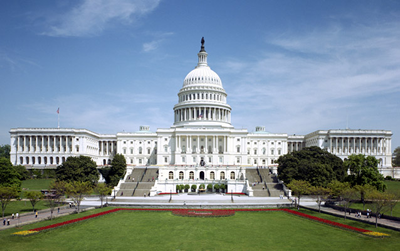Welcome to the
Run on Sun Monthly Newsletter

In this Issue: |
July, 2020
Volume: 11 Issue: 7
How do you spell Relief: S O L A R!As Congress tries to come to consensus on another stimulus package, we are focused on something that could help rebuild the economy in a greener way. Here's our take, and a call to action!
Our friends over at Solar Rights Alliance are good at thinking up big ideas, and they are johnny-on-the-spot now. Here are a couple of key concepts that should be included in the next stimulus bill:
These two simple steps would help restart the solar industry, resulting in thousands of good paying, can't-be-outsourced jobs for workers across this country. Moreover, home and business owners would lower their energy costs, leaving them with more money in their pocket to spend in their communities. And on top of all that, we would be helping to green the grid, lowering greenhouse gas emissions - a necessary step in the battle to reverse climate change. Sounds pretty good, right? Damn straight! But in this time of crisis, silent approval isn't enough - action is required! Fortunately we can make that action really easy. Just click on that big, Take Action! button below and you will be redirected to a website where you can send an email to your U.S. Senators and Representative, urging them to take action to grow solar and jobs in the next stimulus. It takes all of one minute to do it, but the benefit could be felt for years. So what are you waiting for? Mash that button now!
|
“These two simple steps would help restart the solar industry, resulting in thousands of good paying, can't-be-outsourced jobs for workers across this country…”
Help Us Spread the News!


FERC Ruling: Win for Net Metering, for Now!We have been writing about a petition before the Federal Energy Regulatory Commission (FERC) filed by a shadowy organization calling itself the New England Ratepayers Association (NERA) seeking to gut net metering throughout the United States. (See my prior posts here and here.) Well we just learned of the ruling issued yesterday by the FERC, and while it is being widely touted as a big win for net metering, the reality of the decision is far less comforting than the victorious proclamations suggest. Here's our take... Net Metering Survives...The bottom line of the 3-0 Order Dismissing Petition for Declaratory Order is that NERA's petition was dismissed by the FERC, with all three Commissioners in agreement. But this was no full-throated defense of net metering, or even an assertion that the FERC has no business regulating how utilities deal with their rooftop solar customers. After going back over the petition in painful detail, the order identifies the responding parties, and the arguments advanced in support and opposition to the petition. One of the more interesting points raised in opposition challenged NERA's refusal to disclose its members, who pay annual dues in the range of $5,000 to $20,000, which makes them a very special class of ratepayers! Certainly not an organization of regular Janes, paying their electric bill. Noted commenter Public Citizen:
And the Pennsylvania Public Utility Commission asserted that
That, of course, is a jurisdictional argument -- nothing new had occurred to warrant the petition, and the case law that they relied upon was a decade old! And that is how the Commission decided to resolve this non-dispute:
If you were hoping for a clear signal of support for the concept of net metering, you won't find it here! ...For NowTo the contrary, what you find in the two concurrences filed with the order is cause for alarm. Commissioner McNamee noted:
That is what you call a roadmap for future filings. Either repackage your petition as a Section 206 complaint, or bring it up in the next appropriate rulemaking. But just a petition to end net metering out of the blue was a bridge too far. However, McNamee's view may not matter as his term ended last month, so he will likely go back to his law practice "primarily representing electric and natural gas utilities before state public utility commissions." Surprise, surprise. The second concurrence, from Commissioner Danly (whose term does not expire until 2023!) is even more troubling. He wrote:
Nevermind that the Commission has addressed the jurisdictional question before and determined that it lacked jurisdiction over state-operated net metering programs. And is net metering really a "matter of national energy policy"? Whether a PWP customer gets full retail value for the energy they sell back to the grid has zero impact on the ratepayers of New England, except, of course, to the extent it reduces the value of their stock holdings in the oil and gas industry. But that's really none of FERC's concern. So, bottom line, we live to fight another day, and that's a good thing. But net metering continues to be under attack, and this order provides no shelter from that coming storm. Want to do something? Join CALSSA (or your state's solar/storage association) or the Solar Rights Alliance - they need your support to fight back. |

